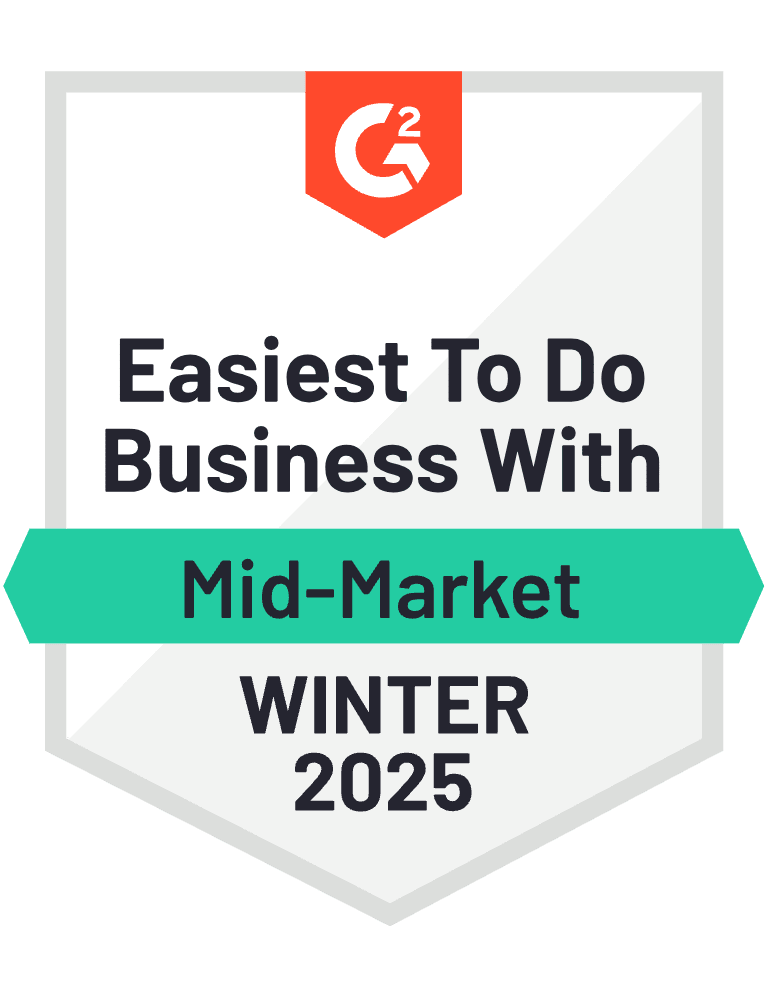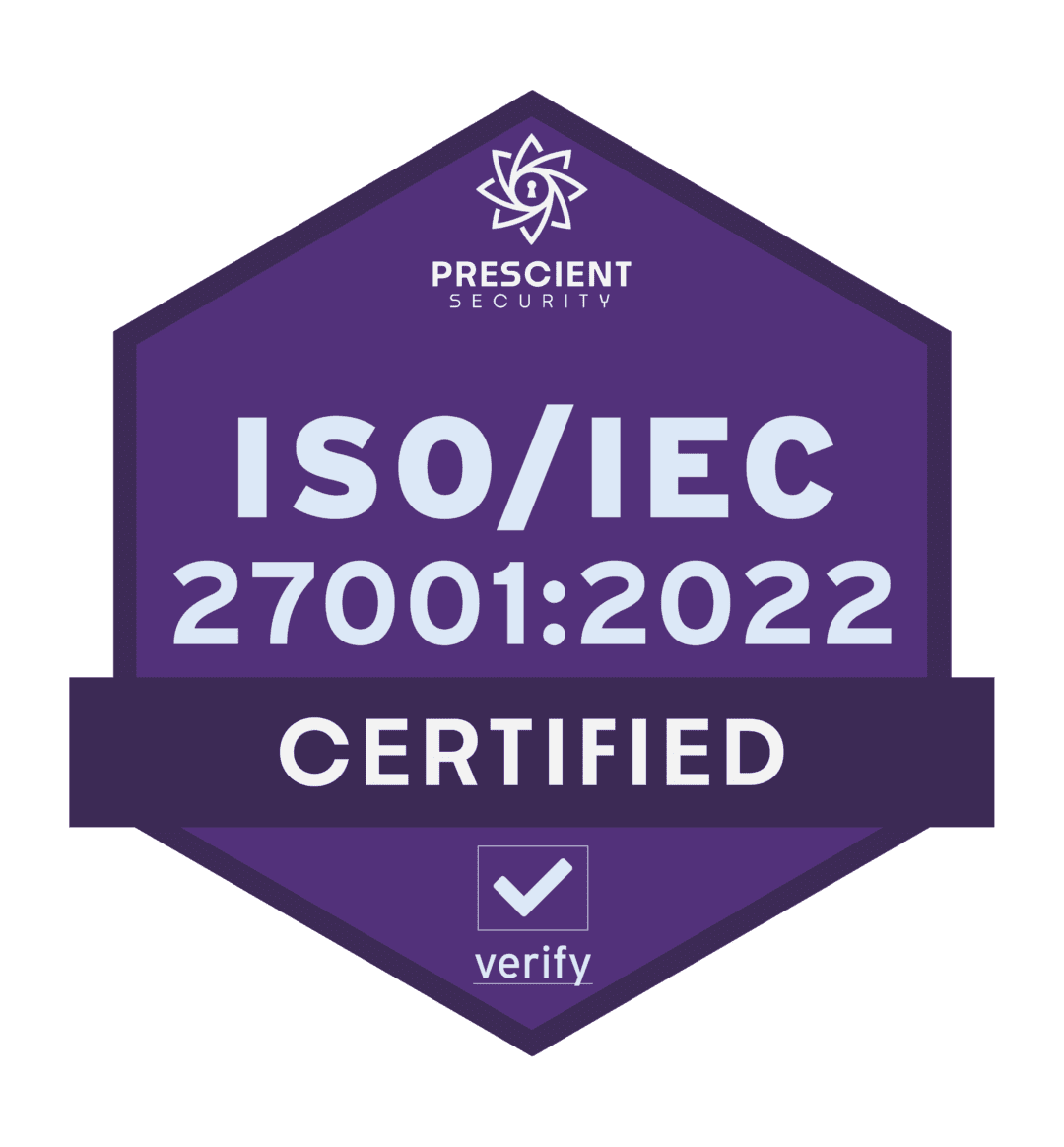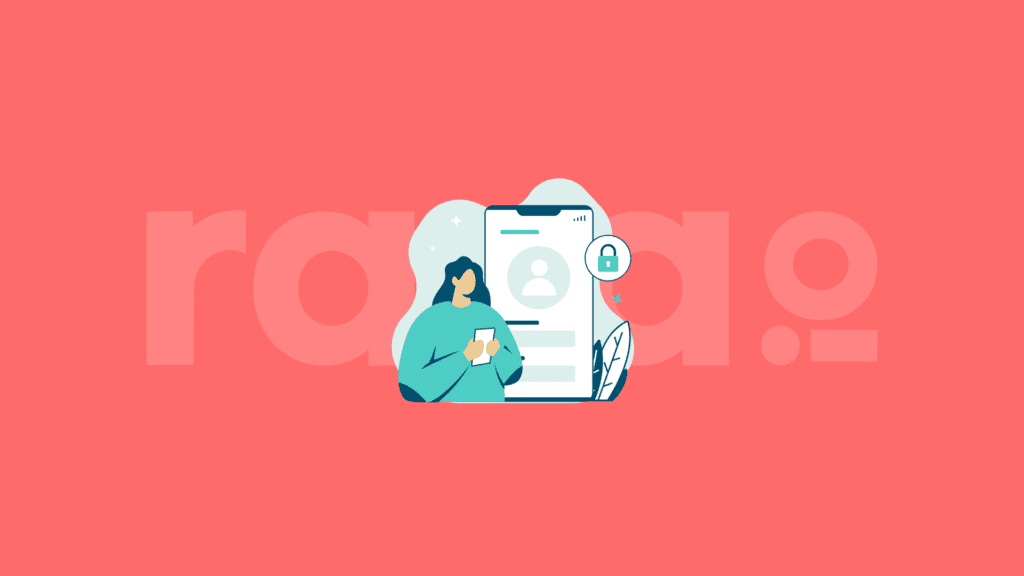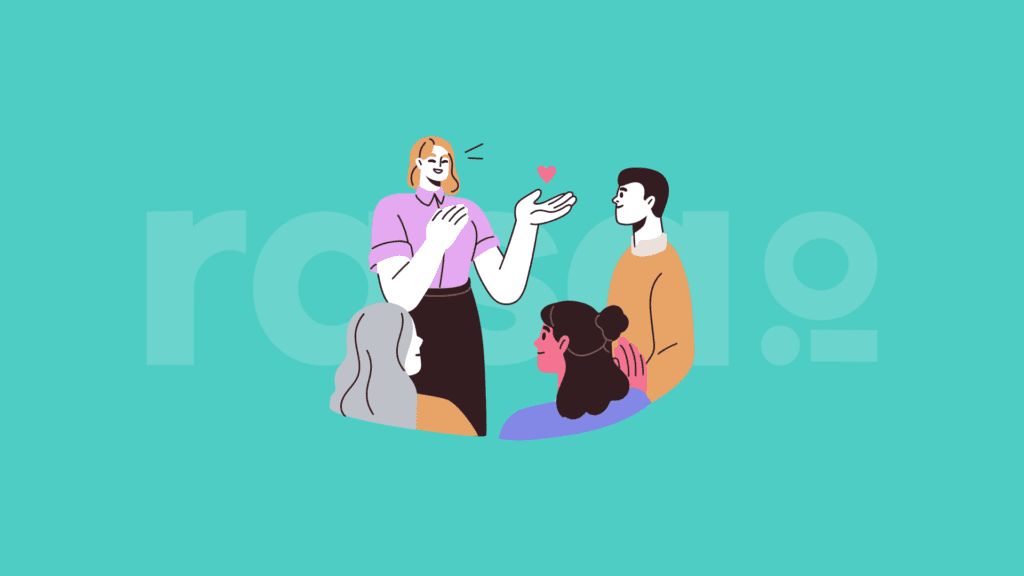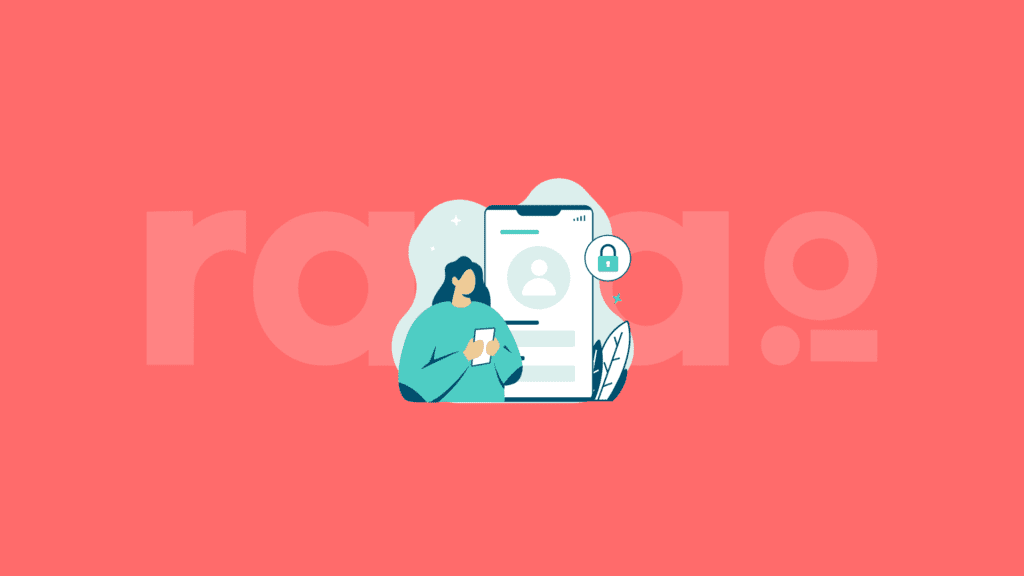Racheal Cook
How a business coach for female entrepreneurs uses email to grow her community and revenue. This is Racheal Cook’s story about Pushing Send.
Racheal Cook is a business strategist who has helped thousands of women entrepreneurs design predictably profitable businesses without the hustle and burnout. She is a best-selling author and hosts the Promote Yourself to CEO podcast. Racheal’s work has been featured on US Chamber of Commerce, Entrepreneur on Fire, Female Entrepreneur Association, The Mogul Mom, Smart Passive Income, and more.
Key Points From This Episode:
- Rachael has found that she can drop off social media and creating content for a while with no impact to her business, but stopping email would completely slow down her business.
- She views email as an ecosystem with some things that are automated and some things that are happening real-time.
- Challenges have been one of the best ways to grow her business.
- Racheal feels like it is important to know your sales cycle and how long it takes someone from the point they enter your ecosystem until the time they become a paid client and email shortens that.
- Creating incentives for people to go from her podcast to her email list has also been really beneficial.
- She uses a hybrid of evergreen systems and live launches to convert leads when they are warm. She also sends a personal email when she is live launching and send them a BombBomb video.
- Getting personal with your subscribers and delivering a high-touch experience can blow them away. Her business is automated enough to make it scalable, but also warm and human.
- Racheal is a lifelong learner and she has learned from some of the best people in the industry. She consistently subscribes to email campaigns of others in and out of her industry to see how they are sending emails.
- Really listening to her audience and putting those things in to practicehas been a game-changer for her.
Tweetables:
“Email has really been the number one way that I not only connect with my community and potential clients but also nurture them into becoming paid clients.” – @RachealCook
“I love challenges. I think they’ve been one of the best ways for me to grow my audience and grow my business. It really accelerates that relationship building like nothing I’ve ever seen before.” – @RachealCook
“I think it’s important to know your sales cycle, how long it takes somebody from the point where they enter your ecosystem until they become a paid client and email has allowed me to really shorten that timeframe.” – @RachealCook
“We have different emails that they’ll get specific for people who actively said, Hey, I actually want to hear about this thing. So they’ll get an email, inviting them to jump on a sales call or they’ll get the opportunity to get some extra content that we’ve planted just for those who are the most engaged with the launch.” – @RachealCook
“There comes a point where they anticipate that it’s going to be completely automated and we’ve made it a point to be automated enough to make it scalable for the business, but not so automated that it’s cold and not human.” – @RachealCook
Links Mentioned in Today’s Episode:
- Bryan Kelly on LinkedIn
- rasa.io
- Racheal Cook on Twitter
- Racheal Cook on LinkedIn
- Racheal Cook MBA
- Promote Yourself to CEO podcast
- Pat Flynn
- Zapier
Episode Transcript
Racheal Cook:
Email has really been the number one way that I not only connect with my community and potential clients, but also nurture them into becoming paid clients without having email in my strategy. If I were just to depend on social media or my podcast or any of those other channels, when there’s not a strong email component with it, then that journey is incomplete. And we just see that we, we don’t convert those people from potential clients into paid clients. So it’s crucial. It’s a crucial part of our process
Bryan Kelly:
From rasa.io, the tool for sending smarter and better email newsletters. This is Pushing Send, a show, featuring people who said emails their subscribers actually want to read. I’m Bryan Kelly, and on today’s show how a business coach for female entrepreneurs uses email to grow her community and revenue. Here’s Racheal Cook a moment ago, you shared how crucial email is for your business. And when you combine email with the various channels like podcasts or social media, you get a force multiplier effect.
Racheal Cook:
Absolutely. That’s exactly what we’ve seen and really what I’ve seen because I’ve been in business for 13 years now. And I have seen that if I drop off social media for a while, it doesn’t massively impact my business. If I drop off creating content for a while, if I drop off anything, but my email, it doesn’t have a massive impact to my business in the short term. But if I stopped emailing, that is the one thing that would really slow down my business. And in fact, when I’ve been in periods of my business where I’ve needed to pull back, like when I had my third child, I wanted to take a maternity leave. And so we scrapped every other part of our marketing plan but our email, we were like, as long as we have emails going out, then when I come back from maternity leave, it’ll be like, I just stepped right back into something that is living and breathing as opposed to something I’ve got to kind of start up all over again.
Bryan Kelly:
Hmm. Now what are some of the different ways you’re utilizing email? If you were to look
Racheal Cook:
Behind the scenes at like a flow chart of all of the email things we have going on, it would probably look pretty wild to someone who doesn’t know how much you can do with email, but the way I look at email and just our marketing and sales in general is this is all an ecosystem. Like we know people will find us through the podcast or find me through Instagram and then they’ll start searching around and they’ll go down kind of a rabbit hole as we all do. And so what we’ve set up is a few different things that are both kind of automated, like running on their own and then things that are in real time. So on the automated side, I have set up quite a few different lead magnets. And if, if you were to poke through my site or listen to my content, you’d see I’m a content creation machine. I just love creating things. And over time I’ve whittled it down to just a few main lead magnets. One that works really, really well for us is a guide that we’ve created called create your 12 month profit plan. And so people can go download that. And then they get a little welcome sequence before they’re put into the rest of our ongoing, like live broadcasts going out. We also have some on-demand challenges that we run and we run them both on-demand and live a few times during the year, but that has been amazing in so many ways. I love challenges. I think they’ve been one of the best ways for me to grow my audience and grow my business. And one of the things I love about it is if you sign up for like our five-day planning challenge, you’re getting 10 straight days of email from us, which might sound like a lot, but it really accelerates that relationship building like nothing I’ve ever seen before. If you were to just let say, go on to somebody’s website and you get their freebie, and then you just get a weekly newsletter. It would take 10 weeks in order to get 10 touches from that person in order to get 10 pieces of content, 10 things in their inbox. And that’s a really long timeframe, but when somebody signs up for one of our challenges and they’re getting 10 straight days of emails, and they’re really valuable, like they’re filled with great content, that’s moving people further along their journey. Then by the end of that 10 days, they’re really, really warm. And they’re either going to buy the next step that we offer. And we actually invite them to join us for our programs at the end of that 10 day email sequence, or they’re now in the back of their mind. And this is what our clients have told us. They’re like, I went through that whole thing and I knew I couldn’t join you right then, but I knew I wanted to join you the next time you opened it. And that’s a game changer when you look at the stats behind a business, like I think it’s really important to know your sales cycle, how long it takes somebody from the point where they enter your ecosystem until they become a paid client. And email has allowed me to really shorten that timeframe because for a long time, for people who offer, um, higher end consulting and coaching, like I do, you can have people who find you and then they wait six months or a year before they make the commitment to work with you because it is a higher touch, more expensive program. But when you put them through emails like we have where you’re getting these really intensive challenges where you’re getting more content delivered to you on a more regular basis, it shortens that entire sales cycle. So we’ve literally had people as recently as a few months ago, I did an interview on pat Flynn’s podcast and I can track the sale. It happened within a week. I did an interview on pat Flynn’s podcast, came out the first week of November. Then that person went and binge listened to my podcast, got the freebie that I had related to the podcast that we had going on, which was our, our five day challenge. And again, it’s a 10 day email sequence. And by the end of that 10 days, they paid in full for a $5,000 program.
Bryan Kelly:
That’s incredible. Cool. So how long was that process?
Racheal Cook:
All of that happened within a week. Now If I didn’t have that infrastructure set up, then I would have spent all the effort on getting a big podcast like Pat Flynn. And they would have gotten a freebie, but maybe not heard about the opportunity to work with me until the next time I launched that thing. And that wouldn’t have been till January. And by then that person wouldn’t be a hot lead. Like they wouldn’t be as excited as they were when they were able to go directly to what I had to offer and sign up to work with me right away. So that’s one big way that we work with email is we have those challenges in place knowing that not everybody’s going to go through it and sign up to work with us right away. But it just accelerates that know like trust process. It really gives so much value upfront that they’re excited to continue connecting with us. The other way that we use email is we obviously I have a podcast. So I do send out emails related to the podcast. One of the biggest challenges I’ve had as a podcast host is getting people to email. So we make sure that we’re creating valuable incentives for people to come from the podcast to the email list. And I also plant little like Easter eggs in the emails about what the podcast that week is about, so that they’ll go listen. So I’m, I’m always trying to drive people from the email list to the podcast and the podcast to the email list. And we send out emails. Those are more live broadcasts cause we’re sending up new podcasts every week. And then the next big way I use email is when we run a live launch, which we are literally as we’re recording today, we’re kicking one off right now, about five years ago, I decided I wanted to have the hybrid of both evergreen systems in place that could sell our programs and services and also launch live. And the biggest reason is the people who find you in that evergreen, like I said, a challenge or something, the people who are going to buy right away are the ones who you just managed to hit them at exactly the right time, where they were really, really seeking that solution that you had. They’re really, really warm. They’re fast action taker usually. Then there’s other people who still need more nurturing or they need time to plan. They need time to make, save up the money to work with you, whatever the situation might be, but they want to stay on your radar. So we still live launch to our list several times a year, because I don’t want someone to join in an evergreen thing and then never hear about our offers. Again, I want them to hear about our offers every other month or so. So we make sure that we’re sending out live launches to our email list. And we do target pretty clearly with our launches, who we’re sending those launch emails to, because I don’t want to just send it to everyone on my list. I like to keep the list pretty clean with people who are actively engaging, but we’ll do things like if they click to check out the sales page on the day that we announce the cart’s open, then we have different emails that they’ll get specific for people who actively said, Hey, I actually want to hear about this thing. So they’ll get an email, inviting them to jump on a sales call or they’ll get the opportunity to get some extra content that we’ve planted just for the people who are the most engaged with the launch
Bryan Kelly:
That sounds really helpful with getting sales in general. Now, what else?
Racheal Cook:
The other thing we do with email and sales, especially when we’re live launching is we actually connected like a zap using Zapier. So we get a list of people who are actually clicking and while I’m going through a launch, I’ll connect with those people. So I’ll proactively reach out, not from my mailing list, but from my personal email. And I’ll send them like a BombBomb. If you haven’t heard of that, it’s the coolest thing. You can send like a video to people and I’ll be like, Hey, Sherry, I just wanted to say, I saw that you were checking out the program. I, if you have any questions, I’d love to chat with you. I checked out your Instagram and it looks like you’re into this. I think it would be awesome to have you please let me know if you have any questions and people are shocked when they get those more high touch emails. It does take obviously like time on our end to send those out. But those are the things that make a huge impact. Like it cuts through the noise when they realize, oh, this isn’t just coming from like a mass email. This is coming directly from Racheal. And it’s her face like, oh, she actually recorded a video for me.
Bryan Kelly:
When we come back, Racheal explains one of the unique and personal ways she connects with her most engaged subscribers and customers. I’m Bryan Kelly, and you’re listening to Pushing Send from rasa.io.
rasa.io:
You deserve to get more from your email list, more sales, more leads, and more engagement, but publishing a consistent newsletter that gets you more it’s time-consuming. so@rasa.io, we’ve simplified the process. We’ll automatically personalize emails for each of your subscribers based on their interests. And when your subscribers get more, would they want you get more? What you want. Everybody’s happy. You want to see how it works. Visit www.rasa.io and click how it works.
Bryan Kelly:
Welcome back to Pushing Send, I’m Bryan Kelly. Racheal Cook has been doing email for a long time, and she’s learned from some of the best minds in email marketing for her, It’s truly about getting personal and real with her subscribers. Here’s Racheal explaining this further. Before our break, you highlighted a few distinct strategies to leverage email, but tell me more about these Bomb Bomb videos being sent from your personal email.
Racheal Cook:
I have sent as many as 300 and it took me like two whole days during the launch to do. And that’s not something I’ll do every time. Like I’m not, I’m not that over the top, but there have been times where I have found, you know, I might not even be able to do it for everybody. I might have a list of people and be like, you know what? I know I can’t sacrifice like the whole week to send these out, but the people I do send them to are super, super excited. And that can be the thing that pushes it over the top. And I think sometimes with email, especially as you grow your audience and you have like tens of thousands of people on your email list, it can start to get overwhelming when you’re like, well, I can’t do anything high touch.
There’s just too many people. You might not be able to do it for all of them, but the people who you do it for will be really blown away. And I think that’s true with any platform. Like I will also send Instagram voicemails on the DM’s. And so I often tell people on my podcast like, Hey, if you have questions DM me and then I’ll end up in a voicemail conversation back and forth. And if that got to the point where I just couldn’t handle it, I’ve stopped telling people to DM me. Again. It’s like, people are shocked when it’s you replying, when it’s you responding, there comes a point where they anticipate that it’s going to be completely automated and we’ve made it a point to be automated enough to make it scalable for the business, but not so automated that it’s cold and not human. Even when it comes to people who like during a launch, if we’re sending out emails and they have questions, we’ll say hit reply and I’ll be responding to every single one. And people don’t believe that it’s me responding. So I’ll do the same thing. I’ll record a video or an audio response back. So they know it’s me and not my team. So I can’t do all of those because we might get hundreds of emails in during a promotion, but my team will escalate people to me and they’ll be like, Hey, I think this one, you really should respond. They sound like they’re super excited about this. And those personal touches can be hundreds of thousands of dollars in sales. So it’s totally worth it to make space for that.
Bryan Kelly:
I love it because they’re already excited and engaged, right? And this just further cements the whole experience.
Racheal Cook:
I, this is one of the biggest differentiators that anybody, these days can put in place. Like we went through the last, I think 10 or 15 years, everybody was all automate, automate, automate, and it really turns a lot of people off. Like people start to feel like they’re just a number to the business instead of a human instead of somebody that we should care about. So I think we need to put that humanity back into our business a bit
Bryan Kelly:
Where did you learn some of these things who mentored you?
Racheal Cook:
I would have to say I learned because I’m just a lifelong learner first and foremost. Like I am someone who, if you were to look at my strengths finder, all of my top strengths are related to learning, to take in information to synthesizing information and looking for patterns. So I study this, I study email marketing, I studied copywriting. I studied direct response copywriting just as much as I would study anything else in my business. I do believe in hiring people and taking courses and taking programs. And so I have learned from some of the best people in the industry I was sharing before we started recording, like I’ve read and taken everything. Joanna Wiebe has ever put out all the way back. When she originally had these copywriting eBooks that were sold on AppSumo in late 2011 or 2012.
Bryan Kelly:
Yes, I have those too.
Racheal Cook:
Yeah I have them all printed out in like in these massive binders. I don’t think she has them anywhere, but those were my first like deep dive into really the science of copywriting in a way that really broke it down. And wasn’t like super fluffy. I was finding a lot of super fluffy things like writing a newsletter and it was just not what I was looking for. So I was like, no, I really want to understand the mechanics of this. Like, how does this actually work? So I, I consumed everything that she had and I also started just following some really great marketers and really great brands. And I think this is one of the strategic things that anybody can do. Even if you don’t have money to spend on like courses or programs, you can go find really smart, amazing examples, and just start saving them and reading them. And by studying it, you will learn so much. So I have tons of emails saved and I’ll actually go back. Like when I was learning how to write launch emails, I would go sign up for somebody’s launch. And I would sign up with it with a couple different emails. Cause I would, I knew that they would have different tagging and things that would happen. So I would have one where I just signed up with an email and didn’t touch it. I just let all the emails accumulate. And then I’d have one email where I would click the sales page link just to see what would happen if they would send me anything else. I had one where I would do their webinar funnel or whatever it was. And up in one where I didn’t show up, like I would just see how many variations I could get. And then I’d print them all out, like a nerd with my highlighter and start like going through and being like, oh, let’s break this down. How did they do this? And I’d figure out the flow chart of how these things worked. So I have stacks of like launches of all the emails from these launches. And it’s fascinating to me to see what people can do with them. And I also love getting emails outside of my industry. There are some brands out there, especially that target me on Instagram all the time. I’m a marketer’s dream. If they’re like a physical product brand. Cause if they target me on Instagram and have great emails, I’m probably going to buy their thing. And then I want to see what happens like when they email me or, or whatever happens. So this is the funniest example, but have you heard of the brand Tushy? This is a ridiculously funny example, but they’re like a bidet attachment for your toilet. They have a great ad. It’s the funniest video ad. I think it’s like a little boy who’s talking about wiping his bottom and it’s the cutest thing. So of course I start following the ad and then I was like, well, I want to see what their marketing is like. So I signed up and I started getting emails and I’m like, this is amazing. Like they lead with humor and curiosity. And then when you buy it, because of course I had to buy it, then you get even more great emails, like telling you everything you need to know about how to install it, what all the features are. I was just blown away. And so I I soak that stuff up like a sponge. I study it. I really get obsessive when I want to know how something works, but it’s really helped me to see all the different ways that we can send emails. It’s not just, Hey, this is the podcast out this week. Go listen. Like that’s not exciting or interesting. No, one’s going to stick with you very long. If that’s the gist of, of what you have to send out, it has to be somewhat entertaining. It has to peek curiosity. And so I’m always looking for what are the great companies that are doing that and how are they doing that? And how could I maybe pull some of that into what we’re doing
Bryan Kelly:
Well before we started recording, I got the sense that you’re really in tune with your audience. And in many ways you were originally the exact customer, you know, serve. Tell me a bit more about how that came to be.
Racheal Cook:
It’s honestly been kind of a, I don’t know, I think of my business journey as a collaboration with my community, because I didn’t set out with that vision or that idea of who I was going to work with. Everything that I’ve done has been in response to what people have told me. When I started my business, when I left corporate consulting, I accidentally ended up the manager of a yoga studio. Like that was totally an accident. And it was that, that turned into more studios reaching out and asking me, Hey, how can you help me? And it was a light bulb moment. They were telling me what they needed. Well, as I to work with more and more than I was having more people come into my world like Racheal, I’m not a yoga teacher or run a yoga business, but I’m a life coach or I’m a wellness coach, or I’m a holistic healthcare practitioner. I’m a doula. Could you help me? And that has just kind of naturally led to this kind of symbiotic exchange where I just keep listening to what my community is telling me. And honestly, if it wasn’t for email, if it wasn’t for the ability to say, Hey, hit reply and tell me what’s going on, or, Hey, I’m creating something new for you. What is the number one challenge you’re having? Or, Hey, I’m doing this survey to see what you guys need right now. I wouldn’t know, like, I wouldn’t know what they really were wanting or what they were attracted to. So everything that I do now, focusing on productivity, planning, and profitability, those are kind of the three pillars of all the content that I’m sharing. That’s all because my audience told me that’s what they wanted from me because I put something out there and they responded to it. They hit reply on those emails. They sent us messages saying, this is what’s changed the game for me, learning how you structure your week has made all the difference. Learning how you’ve worked with your team has been a game changer. Like them communicating back to me is how I figured out where I want to go
Bryan Kelly:
Coming up on our next episode. We’ll hear from Jen Capstraw, one of the co-founders behind Women of Email, a professional network aimed at promoting leadership among women within the field of email marketing. Jen shares her experiences as an email marketing strategist, as well as the story that led to the creation of women of email. You won’t want to miss this conversation. So if you’re listening to Pushing Send for the first time, be sure to subscribe at apple podcasts or wherever you’re listening. So you don’t miss an episode. And if you’ve enjoyed what you’ve heard, I’d encourage you to check out a few other episodes while you’re here. Lastly, leaving a review will help us share these stories with others. Like you, thanks in advance for doing that. I’m Bryan Kelly, and you’ve been listening to Pushing Send from rasa.io.
Listen to the next podcast episode
How one email marketer came to co-found a special organization called Women of Email. This is Jen Capstraw’s story about Pushing Send.
Check out the previous podcast episode
How a popular small business strategist mastered email marketing as a key part of her own business growth. This is Tara McMullin’s story about Pushing Send.






